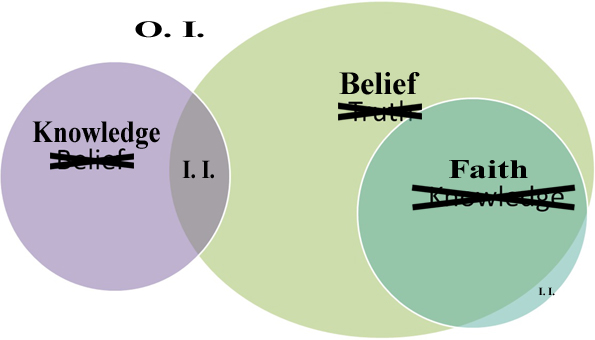@ THE OTHERS.
Imagine you inhabit an epistemological house with two floors. The first floor as the lower floor is your belief and the second floor as the upper floor your knowledge. If you take away your first floor, you are not able anymore to inhabit your house; but if you take away your second floor, you can remain in your house and just inhabit the first floor.
Belief and knowledge have the same roots, but they are not equal, because belief is more relevant than knowledge when it comes to epistomological certainty. Knowledge can be easier destroyed than belief. If you are uncertain, then remember your epistemological beliefs, because your beliefs make you more certain again than knowledge. The conclusion that knowledge can give you more epistemological certainty than belief is a fallacy. If you want to maintain your knowledge, then support it with your belief - like the lower floor supports the upper floor. This does not men that knowledge is not relevant. No! Knowledge is jeweled, but it is more fragile than belief. That is the reason why knowledge needs more to be maintained or nursed than belief. But this maintaining or nursing is not possible without belief. That is the reason why belief is more relevant than knowledge. Your knowledge is of no benefit to you without belief. It is worthless without belief.
If someone wants to make out of knowledge belief or/and out of belief knowledge, then the most effective way is to change the semantics of both words, namely by exchanging both meanings. That is what the rulers and their functionaries have been doing for so long by their so called “political correctness”, which is just not more than rhetoric, propaganda, semantical supremacy. They are destroying knowledge, because they try to replace it by belief, which they call “knowledge”.

